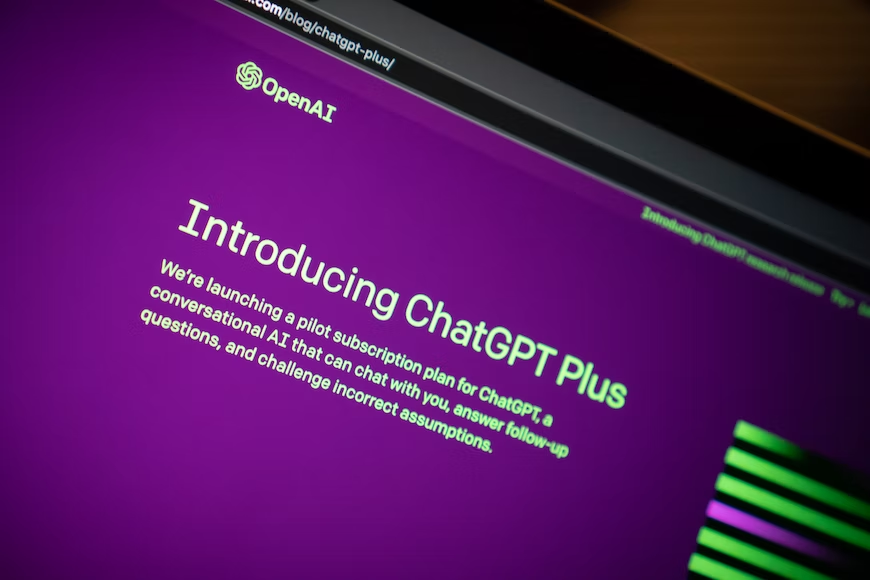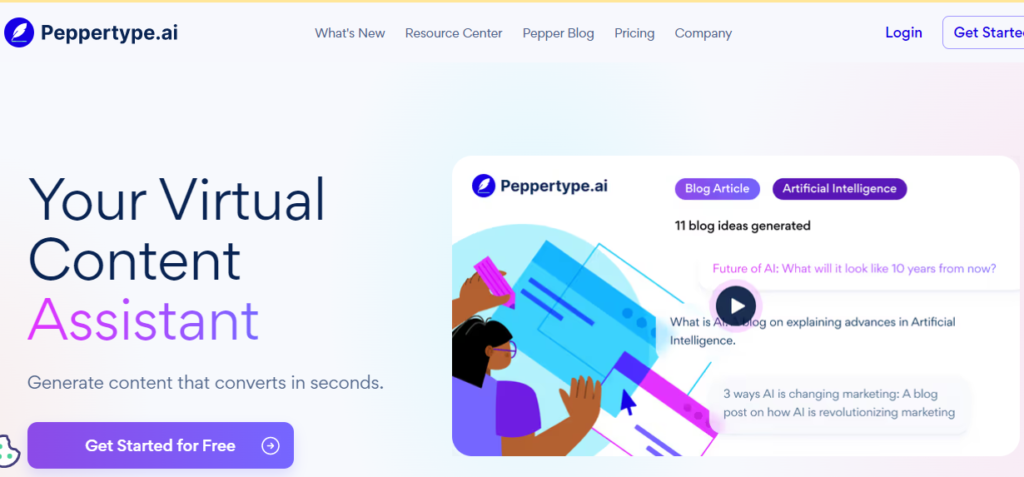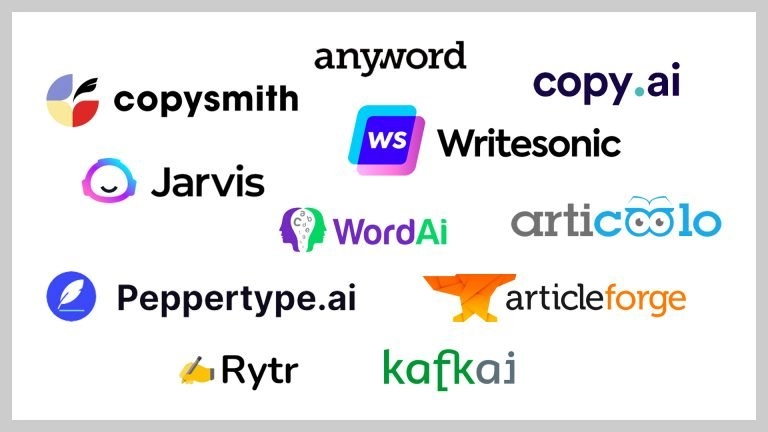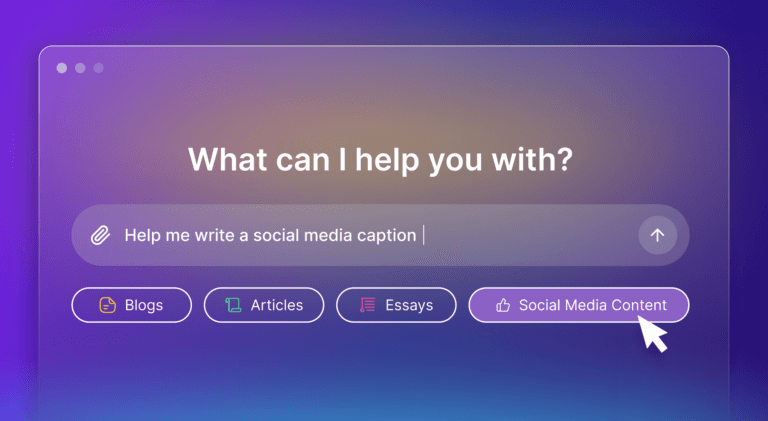7 Pros and Cons of Using AI Tools for Content Writing

Content created by artificial intelligence (AI) tools has become increasingly popular today. The use of AI in content marketing has shown 186% year-on-year growth, with ChatGPT, an AI chatbot launched in November 2022, breaking all records. It attracted over 1 million users within a week of launch and currently has 96 million users relying on it for answers, entertainment, and content.

On the other hand, a survey by Content Marketing Institute reveals that only 15% of marketers are considering switching to artificial intelligence content writing. Then again, it’s important not to put complete faith in such a statistic since AI-powered tools like Grammarly have proven to be indispensable over the years.
AI content creation has raised new questions, especially on the ethical and practical use of AI tools for content writing. Read on to get a better understanding of its undeniable advantages and its inevitable drawbacks.
7 AI Pros for Content Writing
1. AI tools for content writing work faster.
A content writer takes between two hours to several days to write a 1000-word article – depending on the industry, content type, research, topic, and skill. However, AI tools for content writing can help the writer create the same article in minutes. This quick turnaround time (TAT) means your business can generate several articles per day.
2. AI tools are cheaper.
Most businesses need to hire large teams of content writers and editors to keep pace with their content requirements. This drastically increases costs. In contrast, AI content generators work more efficiently. They can produce an increased quantity and variety of content and come with cheaper subscription plans.
3. AI tools are excellent for ideation.

Writer’s block can slow down the output of a content writer. Here’s where AI tools for content writing step in. They can not only create free articles but can also provide detailed outlines and critical points to help writers research and create unique content.
4. AI tools cut down research time.
Content writers spend a significant amount of time doing research. However, AI tools for content writing instantaneously surf the web for all applicable information on a topic and provide well-researched outlines. Since they also track top-performing articles, your article is sure to follow similar trends and stay relevant.
5. AI tools maintain SEO standards.
AI tools search through large libraries before generating content or outlines. Therefore, while reviewing these comprehensive resources, the tool also reviews keywords and how they are used in the content. The popular keywords that rank higher are automatically detected and integrated, providing an SEO-friendly article.
6. AI tools provide a better first draft than humans.

Let’s face it: Any article’s first draft is imperfect. It’s riddled with spelling and grammatical errors and requires copyediting before proofreading, both of which take time. However, since AI-generated content works on standard grammar rules, it produces a much cleaner first draft than a human can, significantly reducing the TAT on the manuscript.
7. AI tools can help you stick to deadlines.
A lot of planning and research goes behind publishing an article. Still, there is scope to miss out on deadlines. However, automating this by creating an AI process will initiate, validate, and publish your content bang on time.
7 AI Cons for Content Writing
1. Additional work to address quality concerns.
AI tools for content writing cannot differentiate between data like a human can. For example, if you come across contradicting information, you can do additional research, find the correct information, and include the same. However, an AI tool may find it difficult to differentiate between them. Therefore, all AI-generated content requires fact-checking to overcome quality issues.
2. Google devalues AI-generated content.
Using AI-generated content is a violation of Google’s spam policies. Unfortunately, this means your content may be devalued or marked as spam. While Google’s algorithm may not always detect AI-generated content, Google’s developers have been tasked to remove content that they deem is AI-generated. This decreases the effectiveness of your AI tool. You can read our article on how search engines penalize AI content to understand more.
3. No personalization.
One common problem with AI content is that it lacks personalization. Often, AI-generated articles look like a list of facts that are meshed together to create an article. They do not have the flow or storytelling that makes the article easy to read and connect with. Thus, these articles fail to evoke emotions among readers – a primary marketing aspect.
4. Requires human intervention.
Even though artificial intelligence content writing makes for an excellent first draft, it still requires manual intervention. AI tools often do not understand the content flow, structure, and human behavior. Furthermore, they overuse articles, decreasing clarity and assertiveness. Therefore, even though you may rely on AI tools for content writing, they require an expert’s eye.
5. You have to choose: black or white?
Most content has some form of opinion; whether stated outright or subtly, all content aims to promote a product/service, evoke an emotion, or connect with the reader. Unfortunately, AI tools cannot understand these differences. A writer may word the product description to subtly showcase both pros and cons of a product. However, AI will focus on only one.
6. No E-A-T.
E-A-T = Expertise, assertiveness, and trustworthiness.
These are the three factors anyone looks for when reading an article. These are what make your article high-quality. Incidentally, these are also factors that Google requires in articles to rank. Unfortunately, AI, while relying on multiple sources, cannot produce this. AI content cannot replicate the experience of a content writer, nor their skill, which affects the overall EAT of the article.
7. AI tools can’t recognize brand value.
As an independent brand, the writer has an individual voice, tone, and style. While AI-generated content can be made high-quality, factual, and even E-A-T-compliant, AI cannot create content replicating your brand’s tone, voice, and style.
Wrapping Up
Many companies already realize how much and how quickly AI can transform their marketing campaigns and content development processes. Marketers and content writers must integrate such new tools to stay relevant and keep scalable growth.
Artificial intelligence is here to stay, and while there are some drawbacks, it can add much more value to your content efforts. If you’re ready to start integrating AI tools for content writing, Peppertype.ai can help you churn out all types of high-quality content. It’s an affordable, easy-to-use service designed to help you take the first step in artificial intelligence content writing.
While this article provides a breakdown of AI’s pros and cons, there’s a lot more to learn. Check how AI helps online content creation to strategize your own digital marketing in 2023.

FAQs
Since AI tools for content writing source information from the internet, the details might be jumbled and sourced from unofficial websites. You will have to fact-check the article and do quality assurance before publishing your piece.
Instead of using AI tools for content writing, you can use them for editing. Refined AI tools can proofread or translate your content and improve its quality by removing redundant sentences.
AI can generate search-engine-optimized content. However, its success depends upon how you use the tool and what type of content you develop.
AI content generation tools can find use in all industries. Since they source information from internet libraries, there are no restrictions on the industry in which they can be used.
AI-generated content is considered plagiarised by some educational institutes and search engines. However, you can use AI as an assistive tool (to check) instead of a writing tool (to write).
Latest Blogs
Learn how to rank on AI search engines like ChatGPT, Perplexity, and Gemini by optimizing your content for authority, structure, and relevance. Stay ahead in AI-driven search with this strategic guide.
Explore the best healthcare SEO services for your medical practice. Improve online visibility and effectively reach more patients in need of your services.
Discover top social media agencies specializing in banking solutions, enhancing financial services and driving engagement.
Get your hands on the latest news!
Similar Posts

B2C Marketing
5 mins read
Top Choices for Best Content Marketing Services in B2B Industries

Artificial Intelligence
5 mins read
How A Lead Generation Specialist Can Use AI-Powered Content Funnels to Drive Conversions

Artificial Intelligence
4 mins read